Kamsavati begged her husband. “Don’t kill our child. He has done nothing wrong.”
Devashravas shouted back at his wife, hiding his guilt and grief behind an aggressive facade. “The soothsayers have proclaimed he will be a blot and danger to our society. As a responsible Yadava royal and the younger brother of the illustrious Vasudeva, I am duty-bound to keep my society safe.”
Kamsavati couldn’t hide her grief the way her husband did. “It was our desire that brought forth this child. If anyone has to be blamed, it is you and me.”
“Stop this nonsense! What has to be done has to be done!” He snatched his newborn baby from his wailing wife and ordered the servants to restrain her to prevent her from following him. He came to the gate and saw the man waiting there. He glanced at his son, and the warmth of fatherly love seemed to melt his cold heart, just for an instant.
He quickly gave the tightly wrapped baby to the man at the gate, “Get rid of it!”
The executioner took the wrapped bundle to the edge of the forest. He placed the baby on the grass and took out the tiniest of knives from his collection. The sharp blade glistened against the bright rays of the sun. As he raised his hand to pierce the baby’s heart, the garment fell away from his face, and the little one opened his eyes and smiled innocently.
The brightness of the newborn’s eyes and the innocence of his smile startled the executioner, and for the first time in his life, he hesitated. He had no idea why he was asked to kill the child, and as usual, never questioned his client’s intentions. But this time, his heart didn’t allow him to be as indifferent as with his earlier killings.
He lowered his hand and put back the knife into his bag. He carried the child and went deeper into the forest. After walking for a while, he heard the sounds of people coming from a distance. He walked in that direction and reached a clearing where a group of forest tribes, the Nishadas, had put up their camp.
He walked to the tribal chief who was sitting on a raised platform, holding court with his council. The executioner came forward and wordlessly placed the baby on the platform, next to the chief.
“This child was given to me by a Yadava royal to be killed. I don’t know why. For the first time, I couldn’t complete my task. Can you help me, O chief?”
The man seated on the raised platform was Hiranyadhanus, the chief of the tribal confederate, and the men sitting around him were the heads of the various tribes that made up the large confederate.
“How can you call him a royal if he ordered you to kill an innocent newborn? This child deserves better. I will raise him as my son. He will be my heir.”
Hiranyadhanus lifted the baby from the ground, and kissed him on the forehead, sealing the father-son pact. And so, Ekalavya was brought up among the Nishadas as a prince to take on the kingship of the tribal confederate after Hiranyadhanus’ time.
Ekalavya and His Desire to Excel In Archery
Hiranyadhanus was also a highly respected commander in the army of Jarasandha, the King of Magadha, a job which took him away from his forest home quite often, and for long periods. Ekalavya grew into a kind, compassionate, brave child, and had all the qualities to become the future king. He was very popular among his tribespeople.
His favourite sport was archery and he quickly became the best among his tribesmen. His father taught him the basic skills after which learned a lot on his own, thanks to his innate acumen and diligent practice.
But, he wanted to become even better at it. He had heard a lot about Dronacharya’s famous school for warriors. He wanted to enrol himself in the school. He didn’t understand why many elders from his tribe tried to dissuade him. They said, “You will not be admitted to that school. It is not for people like us.”
Ekalavya was confused. “Why not? Shouldn’t any student keen on learning be admitted to any school? I’ll prove myself worthy of being Guru Dronacharya’s student,” he persisted.
One day, he climbed up a tall tree close to Guru Drona’s ashram and hid among the dense leaves. He watched the Kuru princes of Hastinapur go about their classes. As he watched Arjuna, the third Pandava, practice his archery, Ekalavya realized how much he needed to learn. At the end of the day, as the classes for the day got over, he climbed down and approached the guru.
The Kuru princes were forced to stop and wait as they watched in unwitting, and almost jealous, amazement. A young, dark, strapping, handsome lad with rippling muscles at all the right places walked towards them. The lad stopped a few feet away from Guru Drona and humbly bowed in respect.
The guru was as impressed as his students at the sight of this strong boy. With a happy smile on his face, “Who are you and what do you want, son?”
“I wish to join your Gurukul, respected teacher.”
“What is your name? And who is your father?”
The forest prince replied, “I am Ekalavya, the son of the king of Nishadas.”
The Kuru princes sneered rudely when they heard the pride in the boy’s voice. Arjuna’s thoughts were, “What an idiot! Why is he so proud to call himself the son of a Nishada? Doesn’t he know he stands before the royal Kuru princes?”
Guru Drona glared at his disciples, angry at their rude behaviour. He turned to the boy and said gently, “I am sorry, Ekalavya. My school is only for royal princes. I cannot accept students from the tribal community. You have to find some other teacher for yourself.”
The words stung Ekalavya not because he was turned away but because he was not even allowed to prove his mettle. The rejection was categorical, and not based on his ability, merit, or desire. He now understood the elders’ warnings.
Moreover, he was stunned and humiliated by the rudeness of the royal princes. He turned and went away without a word. Guru Drona wondered if he could do something for the lad because he showed a lot of promise.
But he had many promises to keep and tasks to be done. He had to train the Kuru princes and prepare them to become worthy warriors. He had to make Arjuna the greatest archer in the entire kingdom. When the Kuru princes were ready, he had to use them to exact his revenge on King Dhrupad of Panchala. He didn’t have the time and energy for a tribal lad with uncertain promise.
Although humiliation was one of the foremost emotions in Ekalavya’s mind, the biggest one was the feeling of devastation. He had dreamt of classes in the Gurukul. He had conjured up images of learning, practising, laughing and competing with the other boys from his class.
Those simple dreams died in a flash! But the dream of learning archery still shined bright in his heart.
So, filled with determination and newfound strength channelled from the feelings of devastation and humiliation, Ekalavya took action as a powerful idea flashed in his mind. He built a statue of Guru Drona and prostrated before it. Then, his daily routine for the next few years began.
He went to Guru Drona’s gurukul every day and watched the princes in training secretly. He observed and picked up the lessons. He then returned home and practised the same lessons. Ekalavya’s hours and intensity of practice were significantly more than those of the Kuru princes.
Once he had learned Guru Drona’s basic techniques, he stopped attending the classes secretly. Instead, he confined his study to his intuition and was able to come up with innovative and brilliant marksmanship skills on his own. Unknown to himself, the forest prince had become the greatest archer in the world.
Ekalavya’s Enviable Skills Exposed
One beautiful, bright day, the Kuru princes went hunting with their highly skilled and trained dogs. One dog went deeper into the forest and found itself in Ekalavya’s secluded training arena. It started barking loudly which annoyed and distracted the lad. He sent a shower of arrows, forcing and keeping the dog’s mouth open but not harming a whisker on the animal! Happy with his work and the outcome of silence, Ekalavya wordlessly went back to his practice.
The dog found its way back to the Kuru princes. They stared in awe and admiration at the intricate arrangement of arrows in the dog’s mouth. It was so perfect that the princes were also able to remove the arrows from its mouth easily, and without hurting the animal.
Then, they followed the dog to Ekalavya’s practice area. The sight there left them even more amazed and thunderstruck. Arjuna recognized Ekalavya instantly. He couldn’t forget the shine and power emanating from the boy’s eyes as he walked towards them and their guru a couple of years ago. He had used his aggression and arrogance to hide the awe, fear, and uncertainty he felt at the sight of the handsome and strong unknown boy.
Arjuna’s fear resurfaced now. The princes were hiding behind the dense bushes for many minutes, unwittingly holding on to their breaths in sheer amazement, staring open-mouthed at Ekalavya’s relentless outstanding marksmanship skills. Arjuna realized that this boy was already the best archer in the world.
Suddenly, Arjuna’s eyes fell on Guru Drona’s statue and his fear turned into doubt-laced anger. “Did our guru pretend to send Ekalavya away so that he could train him secretly?”
After watching the archery display for a while, they left the place quietly and went back home. They narrated everything to Guru Drona. When he heard of his statue, he stood stupefied. Now, the unfamiliar, strange power he felt towards the boy on the first and only time he laid eyes on him returned. That boy was special.
The guru had a faraway look in his eyes as his students related everything. He was jerked into the present by Arjuna’s stinging question, “Do you teach him secretly? What about your promise to make me the best archer in the world?”
Guru Drona’s eyes flashed angrily at Arjuna. “Don’t show your impudence to me, dear boy!” Arjuna hung his head in shame and guilt.
“Go back to your rooms and continue with your studies. I will take care of Ekalavya.”
The guru then sent his spies to find out more about the lad. He was sure there was more to him than being a tribal warrior. His profile and personality reeked of royalty and power which had to come either through intense training or through inheritance.
His spies came back with one of the most interesting stories he had heard in a long time. Ekalavya was already the best archer in the world. If his royal antecedents come out in the open, then nothing can stop the world from knowing him as the best archer that exists. He had to do something.
Ekalavya and His Mother
It was a beautiful and lovely day, another normal morning in the camp of the Nishadas. Today, it was doubly beautiful for Ekalavya because his mother, Kamsavati, was sitting with him in his little, rustic, neat but sparsely furnished hut made of mud and roughly hewn wood and leaves.
She couldn’t stop looking at her son’s handsome face. She kept hugging him and he hugged her right back.
“You already know about me?” She asked her son for the umpteenth time that morning.
“Yes, mother. My adopted father told me everything when I was old enough to understand.”
“Why didn’t you come and look for me?”
“I have come many times and seen you from a safe hiding place.”
Kamsavati was beyond surprised. “Why didn’t you come and talk to me?”
“What should I have told you, mother? That I am the son you didn’t want?”
She cried out in grief as she heard the matter-of-fact tone of Ekalavya.
“How did you find me, mother?”
Wiping her eyes, she said, “Your father told me the truth before he died. The man who was sent to kill you had confessed to your father he couldn’t do it and how he handed you over to Hiranyadhanus.”
“Why didn’t you come to meet me earlier?”
“What should I have told you, my son? That I am the mother who abandoned you?”
The mother and son laughed together at their fate. They chose to forget the past and just be happy now.
“But I have come now to tell you something important. It has come to my knowledge that Guru Drona has been asking about you.”
“Really? Maybe he wants to admit me into his school!” Ekalavya’s eyes lit up in happiness.
“I wish I could be as optimistic as you in this matter, son. I belong to a powerful, royal family, and live in the midst of such people. I don’t trust most of them. He needn’t have sent spies to find out about you if his intentions were noble. I have come to warn you to be careful. Don’t accept anything he says or asks for, blindly and impulsively. He is, after all, paid to teach the Kuru princes, and his loyalty lies only there. He doesn’t really care about anyone else.”
Ekalavya looked down to hide the sadness from his eyes because by now he had also learned that being from a less privileged class was not easy at all. He thought to himself, “All I want to do is learn. I don’t want fame. I can happily give up that title if only the guru would accept me as his pupil.”
He pushed away these sad thoughts for now and only focused on spending time with his mother. He was not sure when he would be able to see her next. Whether he would be able to see her at all!
The Yadavas and King Jarasandha of Magadha were sworn enemies of each other. So, he and his mother belonged to rival camps. There is no place for mother-son relationships in politics and power, he thought to himself.
Before leaving, Kamsavati warned him again about Guru Drona and told him to be careful.
Ekalavya’s Gurudakshina
Ekalavya was practising his archery as usual when he heard the loud rustling of leaves from behind him. He turned around in a flash, bow pulled tight, his eyes, ears and arrow sharply marking the source of the sound, ready to let go in an instant, if needed.
But to his delightful surprise, he saw his beloved Guru Drona emerging from the dense thickets followed by a few of the Kuru princes. He dropped his bow and arrow, rushed forward, and fell at his teacher’s feet. “Welcome to my humble home, respected guru.”
Blessing him, Guru Drona lifted the boy gently by his shoulder. “The princes told me a lot about your archery skills. Can you show me?”
Ekalavya smiled gently at the princes, and said, “I did see all of you hiding and watching me practice.” He turned to Dronacharya and said. “It would be my honour to show you what I learned from you!”
Guru Drona was completely stunned at the outstanding shooting skills displayed by Ekalavya. Arjuna’s face became increasingly dark with anger with each new skill that Ekalavya demonstrated. Many of them were not even taught by Guru Drona. The forest lad had learned to tune into his intuition and discover shots of his own.
Seeing Ekalavya’s splendid display deepened Guru Drona’s determination to go ahead with his plans. He praised the boy fabulously and asked, “Who taught you all this?”
“I was inspired by your teachings, revered guru.”
“So you take me as your guru for the skills you gained?”
“Without a doubt!”
“Then, you must pay me guru-dakshina.”
“With pleasure, sir. Tell me what you need. Your wish will be my command.”
“Give me your right thumb!”
There was a deafening silence in the group as everyone present there looked at Guru Drona incredulously. Without his right thumb, Ekalavya’s archery skills would never be the same. He would never be able to become the world’s best archer.
Ekalavya realized the purport of his mother’s warnings. His head spun in disbelief and horrific confusion. “Maybe I heard wrong,” he thought to himself.
“Can you repeat your command, O guru?”
Dronacharya lowered his eyes and mumbled, “Give me your right thumb.”
In that instant, Ekalavya’s heart turned cold, never to recover its warmth. But he needed to hear it again.
“Can you look me in the eye and ask me again?”
Guru Drona looked up and with his eyes filled with unshed tears asked, “Please give me your right thumb as my guru-dakshina.”
Instantly, Ekalavya cut off his right thumb with the sharp knife he kept in his waistband and handed it over humbly to his guru. He prostrated before him, stood up, and walked away into the darkness without turning back. There was not even a wince of pain on the lad’s face.
Guru Drona held the severed, blood-stained thumb reverently in the palm of his hand, and showed it to Arjuna. “This is the price of becoming the world’s greatest archer. Let us bury it with all respect and build a little temple over it as an eternal reminder of Ekalavya’s sacrifice.”
Author’s Note:
While the thumb-related story of Ekalavya is quite famous, his origins as the biological son of Devashrava, Krishna’s first cousin, is not very well known, one that appears in Harivamsa Parva. The whys and hows of Hiranyadhanus raising Ekalavya is a figment of the author’s imagination.
This blog post is part of the blog challenge ‘Blogaberry Dazzle’
hosted by Cindy D’Silva and Noor Anand Chawla
in collaboration with Zariya Healings.

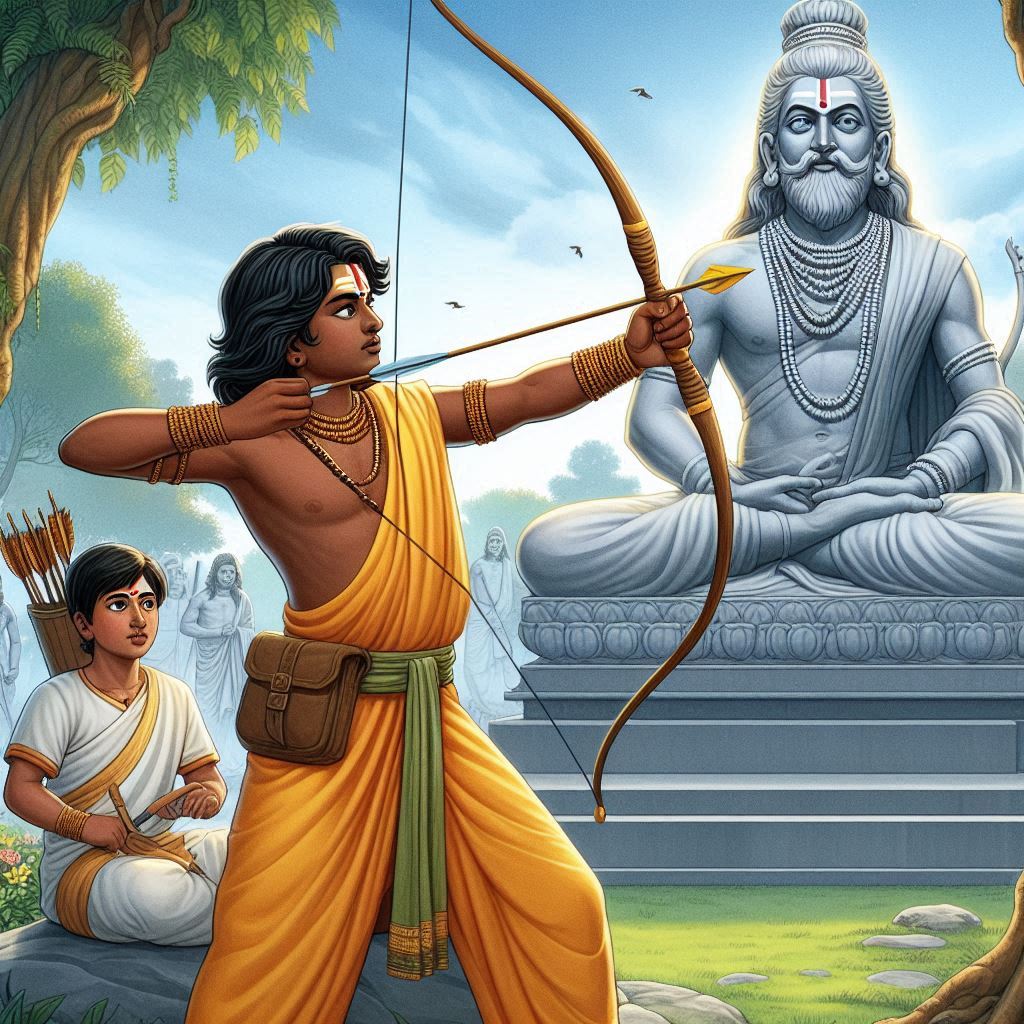
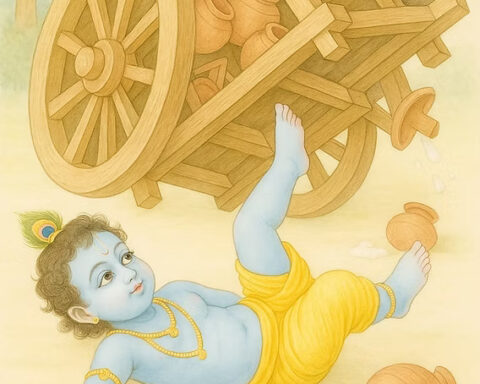
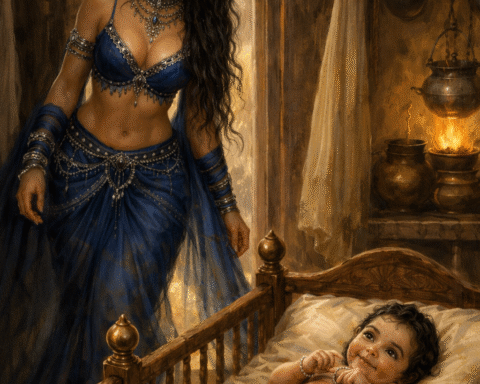
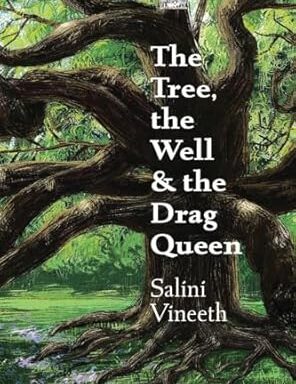
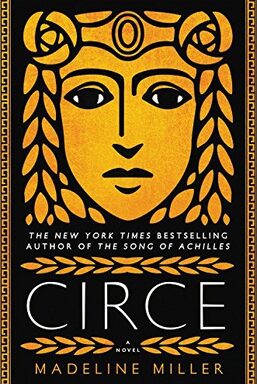
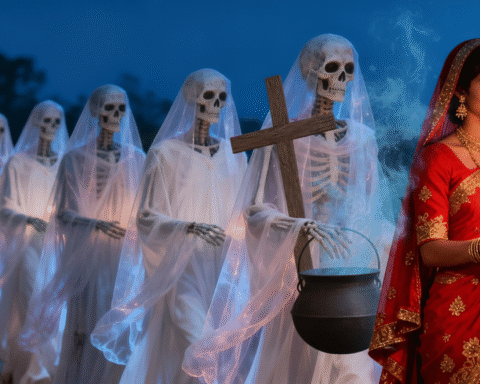
Sometimes, we are not destined to be what we want to be. I have always found Eklavya’s story very sad and unjustified, but then who are we to judge time.
Well said, Ambica. For me too, Ekalavya is one of the most beloved characters. I like him for his resilience. Thank you so much for stopping by and your kind words.
We talk of injustices in the world today, but it has been there since time immemorial. It is a very sad story I feel and Ekalavya didnt deserve to be treated this way by his so-called Guru. We have lores of Gurus who were teachers to eminent people and here is a teacher who asks for his fee even without actually teaching him. Teachers are next to Godliness and this wasn’t expected of a Guru. My heart goes out for Ekalavya and his sacrifice.
Well said, Harjeet. Injustices are, I believe, part of human nature.
Our history is filled with tales of valor, of lost and found, of talents unrecognised. Ekalavya and Karna suffered throughout their lives due to the mistakes of their parents–a lesson for us all to do better for our children.
Oh yes. Great lesson on parenting, what not to do! Thank you for stopping by.
Ekalavya’s story is truly inspiring and serves as a timeless example of dedication, humility, and the pursuit of excellence. The way he overcame the challenges posed by societal norms and his unwavering focus on learning is commendable. His respect for his guru, despite the harsh test of loyalty, highlights the profound values of respect and perseverance. This narrative is a powerful reminder that true devotion and hard work can transcend barriers and lead to remarkable achievements. Thank you for sharing this enriching tale!
Thank you, Meetali for your appreciation. You’re right, devotion and hard word do transcend barriers. Ekalavya is an epitome of idealism.
Some sacrifices for the ‘greater good’ it seems have been carrying on since ages.
I’ve heard and read of Eklavya’s tale but yours provided so much more depth and context. Thanks for sharing it
Well said about “greater good” and sacrifices! In fact, maybe, instances such as these that have continued for eons across cultures and geogrpahies are the reason for increasing selfishness in the modern world! Thank you so much for your kind words of encouragement, Manali
Many of us say and believe that Gurus consider them to be the best guru in the world when their students outperform them and emerge better than them. But the sad reality is something different. Gurus also feel scared thinking what will happen to their popularity if their students became better than them. The thought process is not of Modern times but since the ancient times and Ekalavya is the true example of it. If this is Gurudakshina…. in my eye no deserves Guru Dakshina. Huge respect for Ekalavya for his devotion and respect towards guru… But for Dhronacharya and Arjun….I lack words to express them.
Thanks for this reminder post.
This hits the ignorant part of me who never dwelled deeper even though I loved stories. I knew about the famous one but didnt ponder further. This is so so insightful and intriguing.
Thank you, Priya.
I might go against popular opinion but I disliked Arjuna then and dislike him now. He cannot claim to be the best when systematically all his opponents were done away with. Dronacharya showed partiality towards him, Ekalavya, Karna everyone was humiliated so that Arjuna can be shown in good light. Did not know that Ekalavya was Krishna’s relative.
I am enjoying reading the mythological stories you are sharing. What happened to Ekalavya was unfair. No Guru should do that.
He definitely was an ideal “shishya”. However being ideal doesn’t guarantee you success in this cutthroat world. I have learnt things the hard way.
Loved reading the story in your words Ratna. Everything is politics… Eklavya’s story is so apt for this title.
When we were young we mostly saw only black and white but as we grow older, we realise that there is a whole lot of grey that no one told us about. The Mahabharata has a whole lot of greys and it certainly makes us doubt the intentions of even the God fearing rulers and high profile people of that age.
I started loving your stories and really enjoyed them. Ekalavya is no doubt the best talent and could have defeated Arjun many times, but his fate took the wrong turn, or can I say he could change his fate by not giving Guru Dakshina? Technically, Drone was not his guru.
I understand your perspective. Its a complex state of affairs to understand.
Your story serve as an education to me in the mythology department. Thank u for this education as I m from a different faith and know very less pertaining to these stories.
Thank you, Caroline. I’m so glad you like my stories
Enjoyed rereading the story. I have often wondered if Arjun would still have been the best archer if Eklavya had been allowed to retain his thumb. This was completely unfair.
Unfair,indeed. Thank you for reading my story
I remember studying Ekalavya’s story back in school, and it’s one of those tales that really stuck with me. It’s incredible how he persevered against all odds, honing his archery skills through sheer determination and natural talent. Personally, I admire Ekalavya’s resilience and unwavering commitment to his passion. Even today, Ekalavya’s story holds relevance in discussions about equal opportunities, and the inherent biases in our systems.
Humans are imperfect and injustices will always be there, imho. It’s how each of us deal with these issues that makes us what we are, what karmic consequences we create, again only my personal opinion. Thank you for stopping by and your kind words
Eklavya’s story always makes me sad and makes me wonder if he was wronged by Dronacharya so the princes don’t face competition. Didn’t know his background though. Thanks for sharing the complete story.
Thank you for reading and commenting. It was unfortunate, what happened with Ekalavya, and yet his resilience despite setbacks is a heartening lesson, I beleive.
Ekalavya’s inspiring story of dedication, overcoming challenges, and respecting his guru teaches important values like perseverance. It shows how devotion and hard work can lead to great achievements. Love sharing this with my little one!
Ekalavya’s inspiring story of dedication, overcoming challenges, and respecting his guru teaches important values like perseverance. It shows how devotion and hard work can lead to great achievements. Love sharing this with my little one.
Thank you so much, Anjali, for sharing my story with your little one. Would love it if you could also share other puranic stories too from my blog.
Out of all the stories I read in my childhood, Eklavya’s story seems the most tragic and unjustified. My heart will never accept any excuse for the cruel treatment by Drona.
Not a fan of this kind of stories ever since, though I enjoyed reading this one . For me, the stories are quite typical and you quite know already what would happen which ruins the suspense and anticipation of what would happen at the end of the story.
Thank you, Jeanine. Yeah, most of these stories are well known, and of course, there is no surprise element. Yet, it’s nice to keep going back and reading and writing them as a refresher course. Often new, unknown layers emerge on repeated reading. Thank you again for reading the story and your comment.
I enjoyed reading your retelling. His story is one we see often, good talented people are sacrificed to make way for the supposedly important ones…. justice and fairness still has a long way to go in our society.
You’re right – I never knew anything about Ekalavya other than the thumb sacrifice. But did the reason for his father casting him out be explored later – did he ever fulfil the prophecy of being a blot and danger to society?